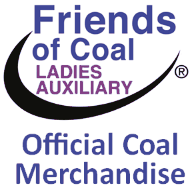
 











|
Signature Sponsor


By Siew Hua Seah November 20, 2020 - US low-volatile coking coal hit a record premium to Australian premium hard coking coal yesterday. Argus assessed the fob Australia price at $98.50/t yesterday, putting the US low-volatile price at a $20/t premium. Australian premium hard coking coal — with a lower sulphur content and higher coke strength after reaction (CSR) — is typically valued higher than the US material. The latter's premium has risen sharply from 55¢/t on 9 November. A surge in Chinese demand for alternatives to Australian coking coal, following import curbs and limited Atlantic supply as a result of production cuts and Covid-19 disruptions earlier this year, meant Chinese buyers this week started paying above $160/t cfr China for certain US and Canadian low-volatile coals. Restrictions on Australian imports have resulted in the Australian fob price falling by $37/t since the start of October and diverging from the China cfr price. Nonetheless, today's China cfr price of $161.75/t remains some way below the 2020 high of $176/t in March, when Chinese demand returned after the Covid-19 lockdown. The higher China cfr price — based on recent US and Canadian trades — also reflects the higher freight cost those origins, estimated at $30-35/t, against just $10-11/t for Australia-China trips. While market participants largely see the spike in ex-Australian coking coal prices as a short-term trend stemming from political tensions between China and Australia, it could extend beyond earlier expectations that business will return to normal by the first quarter. Chinese importers are braced for disruptions past the lunar new year in mid-February. Switzerland-based trading and mining firm Glencore indicated that it might cut its Australian production and 2021 target from 2019 levels, on expectations that Beijing will continue to target Australian coal imports in the new year. Meanwhile, mining firms and traders in the Atlantic are receiving enquiries beyond the first quarter and into the rest of 2021 from Chinese buyers seeking to diversify to avoid being caught short again. China's curbs on Australian coal are not uncommon, and market participants typically expecting a drop in shipments from Australia as quotas run low by the fourth quarter. But this year — with China's Australian coking coal imports rising by 37.5pc to 31.6mn t in January-August, amid China's post-Covid steel recovery — mills were quicker to exhaust quotas. In May, China's state-run CCTD coal transportation and distribution association called for tighter restrictions on coking coal imports, saying lower seaborne prices make it difficult for domestic metallurgical coal producers to compete. This led to restrictions being imposed in early October on mills' imports of Australian coal. But Beijing could soften its stance. Mongolian coal has been the main winner from the import curbs on Australia, with China's imports from Mongolia totalling 3.07mn t in August, exceeding 3mn t for the first time since September 2019. But Mongolia introduced a curfew and closed businesses this week in response to rising Covid-19 cases and a truck driver testing positive. This could cause difficulties for Mongolian coal deliveries to China and drive up the China cfr price. The boost to demand for US coal as Chinese buyers seek alternatives has come too late for US firms that closed mines, declared bankruptcy or cut production. While the US is usually a swing producer in the coking coal market, casualties from the last market trough are unlikely to re-emerge in time. But the switch in China's buying is a welcome development for Atlantic producers, with grades such as Blue Creek #7 regularly traded, and Teck in Canada, which produces Raven, a blend targeting Chinese mills. Other US mining firms say they are reconnecting with customers they supplied before China slapped retaliatory tariffs on US coal in 2018. Beijing started granting tariff relief on US coal imports in March, reducing levies to 3pc from 30.5pc in the wake of the phase one trade deal signed with Washington in January. But overall shipments had been slow to pick up until recently. US producers are unlikely to rush to restart lines market participants say. "It depends how long people think this uptick will be. Come January, if the Chinese open their gates to Australian coal again, life will go back to normal," a source at one US firm said. Producers such as Arch and Warrior that have stuck to capacity expansion plans could be well placed to capture growing Chinese demand — assuming Chinese mills continue to diversify.
Low-vol coal, fob Australia, fob Hampton Roads, cfr China $/t |
 








|
.png)